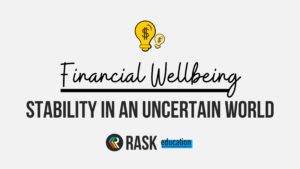Superannuation is a financial system designed to fund the retirement of Australians. By contributing to super, Australians can partly or fully self-fund their retirement or leave a legacy to their partner or children on their death.
Aside from it being compulsory, people contribute to superannuation because, typically, it attracts a lower rate of tax – allowing the fund to grow quicker than investments outside of super.
Super funds put their members’ money to work in a range of investments like shares, property, bonds, cash and alternative investments.
Contributing to Super
Individuals can contribute to their superannuation fund in two ways.
1. Before tax
The first way is to use ‘concessional’ contributions, also known as before tax contributions.
These contributions are taken out of your salary by your employer before you receive your wage. The superannuation guarantee is mandatory and must be paid by all employers for anyone over 18 earning more $450 per month.
Your employer must contribute to your nominated super fund.
A salary sacrifice arrangement and contribution splitting (where one partner’s contributions are split with the other) are other common examples of before-tax contributions.
If you are under 18, super is compulsory only if you are working 30 hours per week and earning more than $450 per month.
Bpay with a tax deduction
You may be eligible to make ‘before tax’ contributions to your super fund by depositing money and claiming a tax deduction.
2. After tax
The other way to contribute money to superannuation is by making non-concessional or after-tax contributions.
For example, if you are an employee on a salary, you can invest some of the wages you receive in your superannuation fund – straight from your pocket.
If your partner puts money in your super fund it is a spouse contribution and counts towards your after-tax contributions cap.
Super Caps
There are caps on how much can be contributed into super both before and after tax.
Withdrawing money from Super
Money in superannuation is designed to fund your retirement. Typically, you cannot access the money until you reach preservation age (typically in your late 50’s), at which time you’ll retire or enter a transition to retirement strategy. Alternatively, you can wait until age 65.
You can access your money as a lump sum or income stream.
Death benefits
If you were to pass away, you can nominate your partner or dependent children to receive your superannuation. However, taxes may apply in some circumstances.
Other benefits of superannuation
In addition to the tax savings, your super fund may hold life insurance or other policies like income protection on your behalf.
More info on Super
Don’t rely on the information presented here. Speak with your adviser or accountant before doing anything.
You can get more information on superannuation by calling your super fund or reading the fund’s product disclosure statement or PDS, which contains information on the fund’s strategy, risks and fees.
Fees of Super
Small differences in fees today can have a huge impact on your balance come retirement, thanks to the wonder of compound interest.
Click here to watch our video on Super fees.
Track your lost super
You can track your lost super using the Government’s myGov website. Click here to watch our video, which explains the process.
[ls_content_block id=”27643″ para=”paragraphs”]



